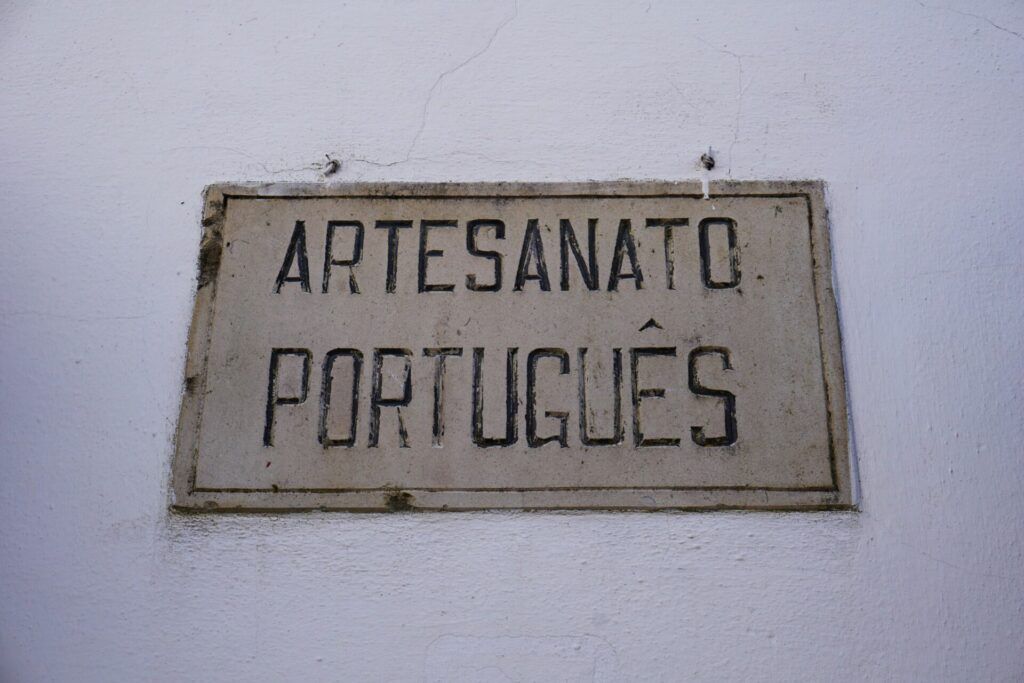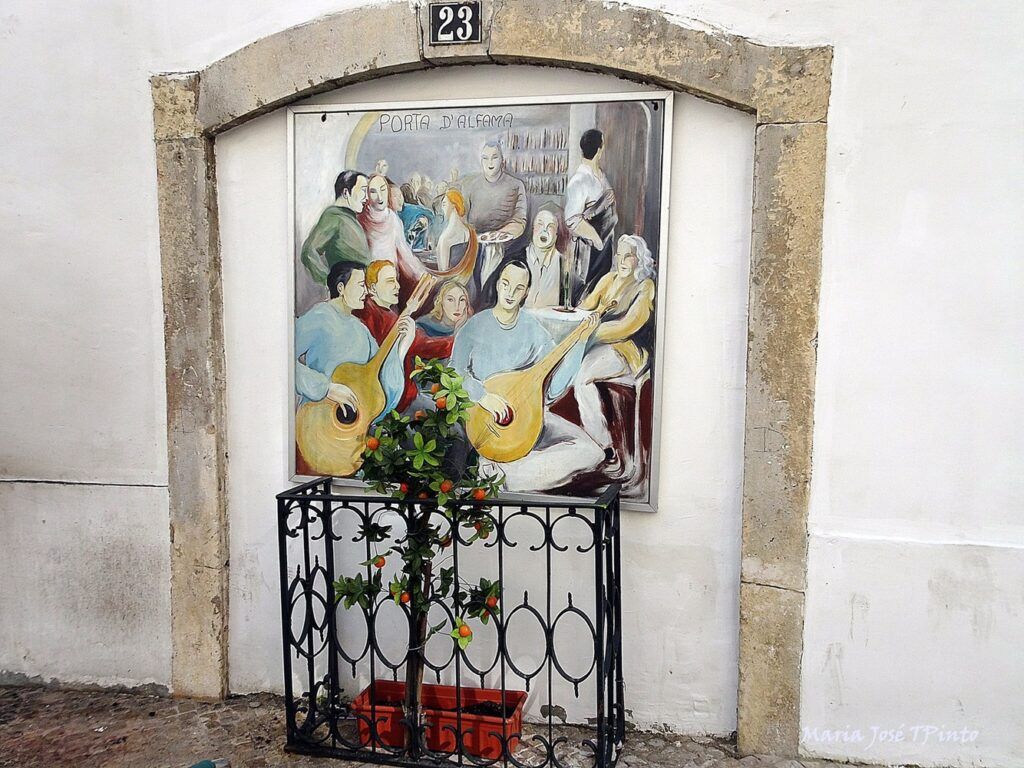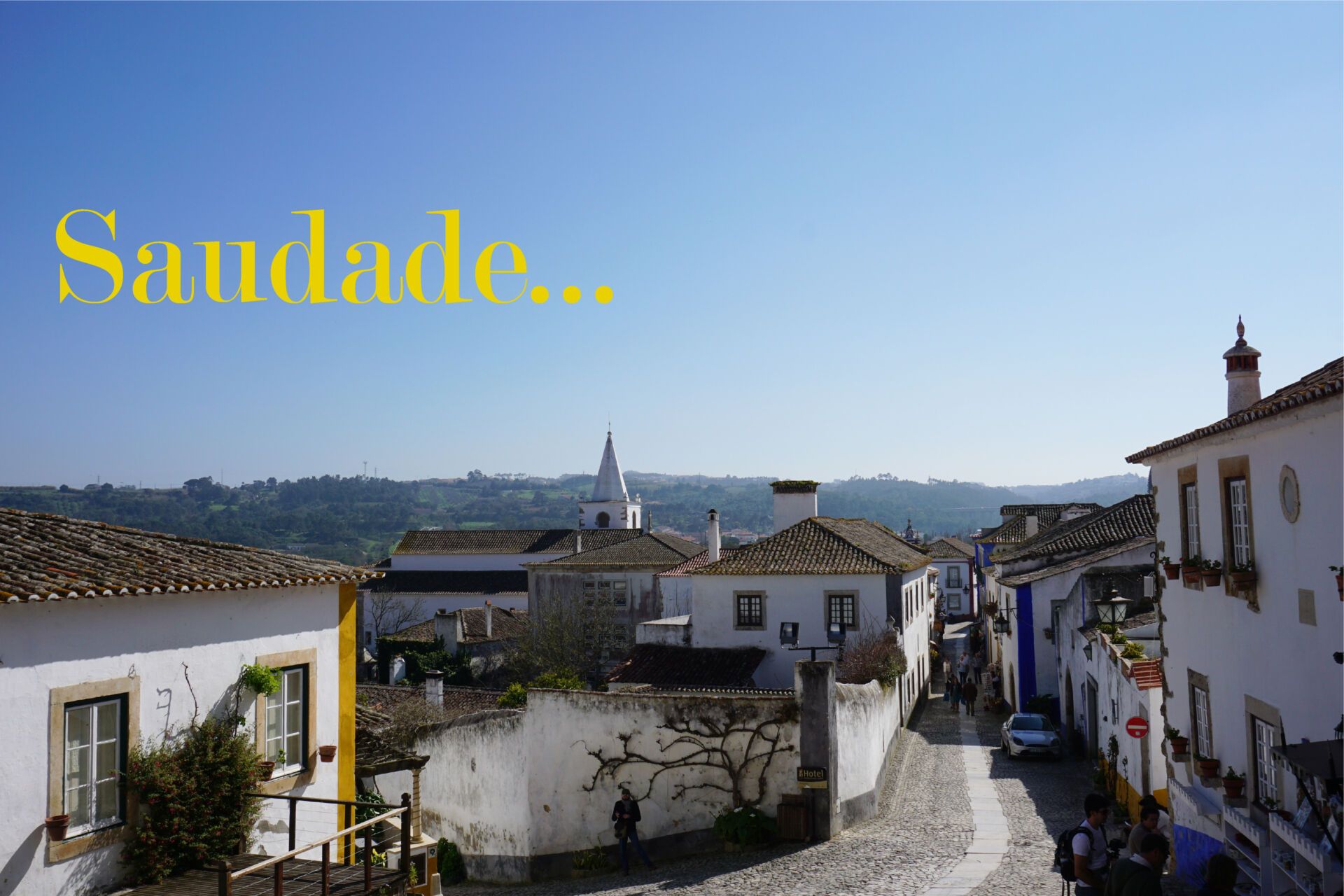Portuguese people love good food, wine and beer, sunshine, the beach, friends and having fun: the simple things that make life worth living. And for the most part, we have all that, so we’re happy. But there’s something inside every Portuguese person that keeps us from being truly content with our situation, at least for long, uninterrupted periods of time. That something is saudade.
Saudade is often cited as one of those words without a direct translation into other languages. And whilst I can think of no other word that is more Portuguese than saudade, the nuance of the word is one of the most difficult for foreigners to fully grasp. Several writers have tried to describe it:
A melancholic longing or nostalgia for a person, place or thing that is far away either spatially or in time – a vague, dreaming wistfulness for phenomena that may not even exist.
or
A deep emotional state of nostalgic or profound melancholic longing for an absent something or someone that one loves. It means missingness. Moreover, it often carries a repressed knowledge that the object of longing might never return.
Or
Saudade is the longing to return to a time that can never come back.
Ooof! Heavy stuff. 17th century Portuguese writer Manuel de Melo eloquently described it as “a pleasure you suffer, an ailment you enjoy.”

Saudade is so predominant in Portuguese culture that it’s a recurring theme in Portuguese fado music. It’s easy to find a fado song whose lyrics explicitly reference saudade or imply the concept. Even the rhythm and tones of many fado songs convey the emotions of saudade. In my opinion, listening to fado is probably the best way to understand saudade. Take 3 minutes of your day to listen to this fado song, written and composed by my grandfather (lyrics below) and tell me you don’t start to understand saudade.
Contos velhinhos de amor / Old tales of love
numa noite branca e fria / on a cold and white night
tantos trago para contar / so many I have to tell
são pétalas duma flor / they’re petals from a flower
desfolhadas ao luar / picked in the moonlight
contos velhinhos de amor / old tales of love
numa noite branca e fria / on a cold and white night
tantos trago para contar / so many I have to tell
Contos velhinhos os meus / Old tales of mine
são contos iguais a tantos / are like so many others
que tantos já nos contaram / that so many others have told
são saudades de um adeus / they’re a longing for a goodbye
de sonhos que já passaram / of by-gone dreams
contos velhinhos os meus /old tales of mine
são contos iguais a tantos / are like so many others
que tantos já nos contaram / that so many others have told
Saudade, as a word, has a somewhat different meaning when it’s pluralized to saudades. It takes on a more literal translation to “missing” in English. Tenho saudades de literally means “I miss” and can be followed by a name, a place, etc. But saudade in the singular is much more complex as it often relates to abstract concepts, which are much more difficult to address.

Present-day fado singer Ana Moura sings about this contradiction between happiness and nostalgia in one of her songs, Desfado, part of which I’ve translated for you here.
Ai que saudade / Oh how I long
Que eu tenho de ter saudade / To feel saudade,
Saudades de ter alguém / Saudade for some someone
Que aqui está e não existe / Who’s here but doesn’t exist;
Sentir-me triste / To feel sad
Só por me sentir tão bem / Just for feeling so good and happy,
E alegre sentir-me bem / To feel good
Só por eu andar tão triste / Just for feeling so sad
It’s this harmony between joy and saudade that can make Portuguese people’s happiness a little bittersweet. If you’re confused by how somebody could be relaxing at the beach on a beautiful sunny day, surrounded by people they love and feel a little melancholy, it’s because of saudade. They might be feeling nostalgic over somebody whom they would’ve liked to share that moment with, or thinking of by-gone times that were as good as or better than the present moment, or coming to terms with the fact that this happy moment is only fleeting and, before long, it’ll become no more than a memory. Saudade provokes a certain melancholy in the Portuguese heart, but it acknowledges and appreciates the past and present.
So, does saudade keep Portuguese people from being truly happy? In my opinion, no, but that happiness is usually tinged with nostalgia or melancholy. Still, doesn’t contrasting an emotion (such as joy) with an opposing one (saudade) have the effect of intensifying the former? Saudade is a blessing and a curse on the Portuguese: a curse because of its intense and quenchless feelings of sadness, and a blessing because it recognizes the good that once was, or is, or might be…

Photo c/o http://domadorofthedreams.tumblr.com



One way to help mitigate feelings of saudade to tolerable levels is to sing fado vadio backwards thereby restoring all that one has lost unless the lyrics are concerned with prying inlaws, lay about family members or an overly critical mate. That being the case, the fado becomes a jubillent ditty.
You made me laugh, Frank!
This word perfectly describes my life.
I can relate… You must have Portuguese blood!
No Portuguese blood that I am aware of. However, I am hoping to retire in Portugal in a few years. To that end I will be visiting Portugal this summer.
If you can identify with this post, you’re ready to move there! I hope you have an incredible time there this summer and that my blog inspires some of your travels when you move there.
: – ) !!
Wow, this was enlightening! It describes almost all Portuguese immigrants I know here in the US. I always figured the “saudade” was a longing to be back in Portugal… But I think you are correct, that it goes deeper than that.
Love the way you described something indescribable, beautifully written!
Thank you so much! I think what you said about the immigrants is very accurate. The problem is that the saudade doesn’t completely go away when they go back to the “homeland”. Because saudade, as you say, is deeper than that. I’m thrilled by the feedback – so many people say it resonates with them. I love the concept of saudade and hope to help others understand it better.